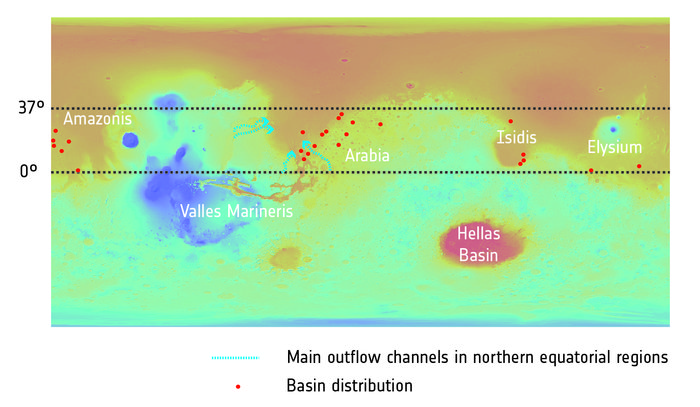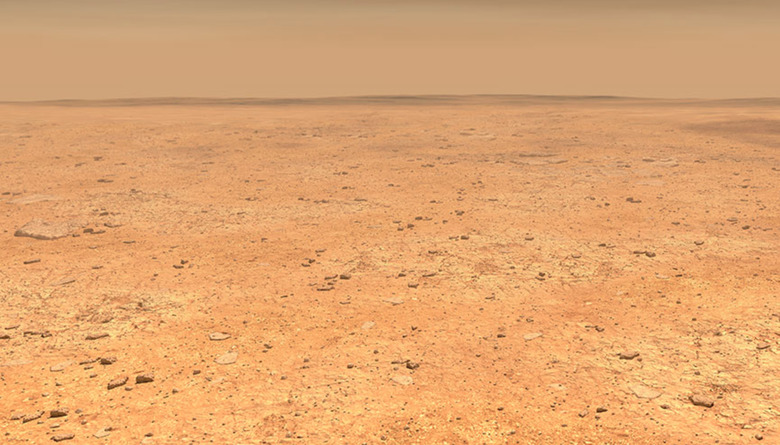ESA Finds Evidence Of Massive Mars Lakes Where Life May Have Once Thrived
Imaging the possibility of life one existing on the surface of Mars got a whole lot easier once scientists realized the planet was once covered in water, but exactly what mechanics impacted the water on ancient Mars is still largely a mystery. A new research effort using data from ESA's Mars Express spacecraft is shedding some new light on Martian water systems, and it could impact humanity's search for life on the Red Planet.
The work, which was published in the Journal of Geophysical Research, reveals the existence of an ancient groundwater system on Mars that would have fed lakes and other large bodies of water.
The researchers closely examined images and other data associated with two dozen craters located on Mars that are thought to have rested below what scientists currently estimate was the planet's sea level. The team found clear evidence that water once filled the large depressions, and that the water levels likely changed significantly over time.

"Early Mars was a watery world, but as the planet's climate changed this water retreated below the surface to form pools and 'groundwater'," lead author Francesco Salese said in a statement. "We traced this water in our study, as its scale and role is a matter of debate, and we found the first geological evidence of a planet-wide groundwater system on Mars."
Researchers have long believed that Mars had a vast ocean, and this new study supports and expands on that idea."We think that this ocean may have connected to a system of underground lakes that spread across the entire planet," co-author Gian Gabriele Ori explained. "These lakes would have existed around 3.5 billion years ago, so may have been contemporaries of a martian ocean."
At this point it's clear that Mars was once a very, very wet world, but whether that liquid water supported any life on the planet's surface is something we still don't know. Future missions to the planet could reveal evidence of past life, or perhaps even microbes still persisting deep under the surface. For the time being, however, we'll just have to wonder.
